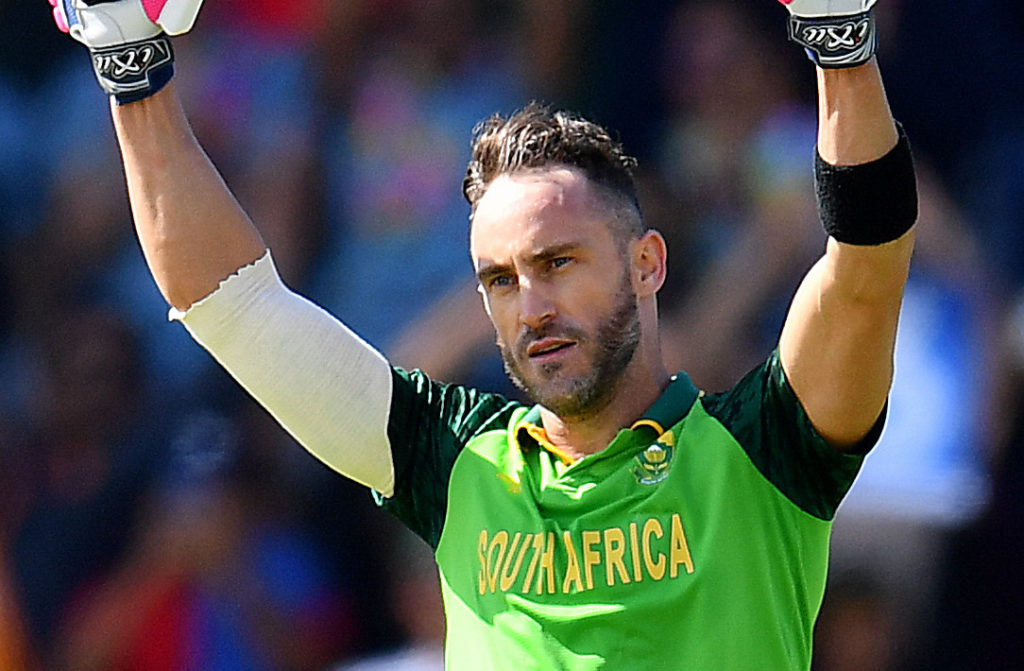The Proteas selectors appear to have retired Faf du Plessis from international cricket by omitting him from the last series before the T20 World Cup. They may live to regret that decision, writes RYAN VREDE.
Faf du Plessis is not going to the World Cup unless there is an injury crisis prior to the tournament.
This assertion is supported by the fact that, despite Du Plessis declaring his availability and being in excellent form in successive IPL tournaments, the selectors have consistently looked elsewhere since Du Plessis announced his retirement from Test cricket earlier this year.
It appears that an imagined sense of disloyalty has counted against him, despite there being no more prolific South African batsman in franchise T20 cricket in the last 10 months.
“I strongly believe I have a lot to offer the Proteas in this format (T20),” he wrote in an Instagram post in which he announced his retirement from the game’s longest form.
He added: “I will be in conversation with CSA over the next couple of months on what the future might look like for me over the next year to find a solution that works for both of us.”
Du Plessis wants the Proteas more than their selectors want him. This is deeply perplexing, particularly considering the Proteas’ batting inconsistency and lack of X-factor.
This remember, is a player who averaged 60 in his last T20 series for the Proteas, against England, the format’s top-ranked side.
The tour of the West Indies and Ireland revealed Quinton de Kock as the team’s primary threat with the willow. None of his teammates could match his potency or consistency.
There were sparks of life from a clutch of others, Temba Bavuma, David Miller and Aiden Markram among them. Yet nothing to stir more certainty than hope going into the showpiece tournament.
There is no cricket reason that can justify Du Plessis’ omission. His form, temperament and experience warrants his inclusion. His familiarity with slow, turning pitches like will be encountered in the UAE and Oman, further supports his case.
Critically, Du Plessis is better than whoever will bat at No 3 or 4 for the Proteas. He could even open, as he has done for a number of franchises. Instead it is likely that Du Plessis will watch the tournament from his couch.
This continues a trend of the selectors being deeply reluctant to look beyond any players who’ve opted for freelance T20 careers, as opposed to being locked into provincial or national contracts. This is a juvenile selection criteria that prioritises the perception of patriotism over what would make the team better.
Du Plessis is not alone on this island. AB de Villiers, Chris Morris and Imran Tahir, who have all been in form that should warrant consideration, are there with him.
De Villiers declared himself unavailable, citing concerns over taking someone’s place in the squad despite last playing for the Proteas in 2018. Head coach Mark Boucher lamented this decision. He knows De Villiers should walk into the squad on the weight of his talent alone. But, with De Villiers having expressed his desire to return, it fell to the selectors to allay his concerns in pursuit of their goal to build a formidable World Cup challenge.
Planning for a future without Du Plessis is understandable, but to not use him for a major tournament is indefensible, even when viewed through this lens.
The selectors’ primary objective must be to give the team the best opportunity of winning the tournament. Du Plessis significantly improves the Proteas’ chance of doing that.
Moving beyond Du Plessis now is a selection error dressed up as strategic future planning.
The selectors have time to change course and increase the strength of their World Cup challenge in doing so. Don’t hold your breath.







